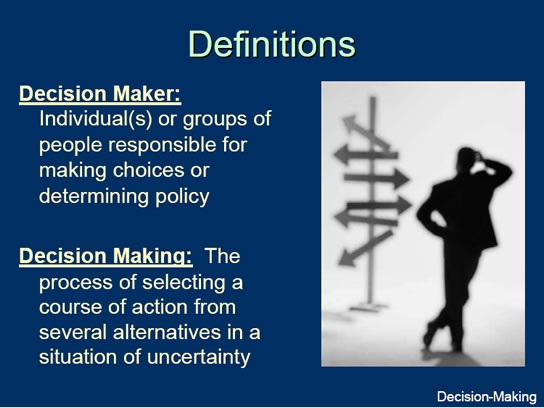Tutorials on Systems Thinking
Decision Making Definitions

2 / 20
We make decisions every day. Some decisions are relatively straightforward and simple: Should I put fertilizer on my lawn? Others are quite complex: How can our community maintain a balance between industrial and residential areas while protecting human health, providing access to jobs, and making this a place where people want to live?
Simple decisions usually need a simple decision-making process. Complex decisions, however, require a more complicated process because they typically involve issues like:
Uncertainty – a limit to knowledge where it is impossible to describe an existing state or future outcome accurately
Multiple Options with Trade-offs – a consideration of many possible solutions where changing one factor in a positive way could negatively affect others
Value Conflicts – a difference of opinions based on differing concepts of good and bad or right and wrong
Extended Time Horizons – a situation where the impact of a decision today does not materialize for many years
Organizational and Institutional Constraints – factors (such as legislative authority and resource limitations) that limit effective implementation of decisions
High Stakes - a risky situation in which somebody is likely to win or lose a great deal
To review an example of a complex decision, see the Portland example (Appendix A).
